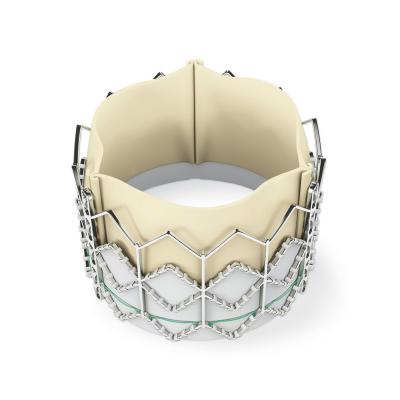
March 8, 2012 — Edwards Lifesciences Corp. reported March 3 it filed its official response to the Centers for Medicare and Medicaid Services (CMS) on its proposed national coverage determination (NCD) for transcatheter aortic valve replacement (TAVR).
The company commended CMS for proposing flexible coverage for TAVR for all indications approved by the U.S. Food and Drug Administration (FDA), providing reimbursement for both current and future TAVR device approvals. Edwards said in its comment that it believes "such a policy benefits Medicare patients in need of treatment by providing uniform and timely access to new TAVR indications upon FDA approval." Edwards also supported CMS' proposal to require that all TAVR patients be enrolled in a qualified prospective registry that tracks patient outcomes. In filing its comment, the company noted the significant contributions made by the professional medical societies to the development of this draft policy.
The company also addressed in its response the areas of the proposed NCD that it believes would benefit from more careful consideration of patient impact. Edwards stated that the CMS proposal to limit coverage of clinical trials to "superiority trials" undermines efforts to promote continued U.S.-based clinical research for Medicare patients. The company said there are also important, yet relatively small, patient populations that would be well served by further studies — and that may not get treatment if the proposed conditions are not revised. In addition, the company believes that for this team-centric procedure, the credentialing of facilities and heart teams is far more relevant than traditional physician-based credentialing. Edwards proposed alternative criteria for both qualifying the establishment of a TAVR center and, once established, additional criteria for maintaining and improving outcomes.
Edwards' comment also reviewed the substantial body of evidence from the Partner Trial demonstrating that TAVR benefits patients with severe aortic stenosis. The trial showed that TAVR with the Edwards Sapien valve decreased all-cause mortality by 20 percentage points in inoperable patients at one year compared to the current standard of care. Inoperable TAVR patients in the trial also reported an improvement in their quality of life, with researchers reporting that at one year, patients experienced significant cardiovascular and physical health benefits. For high-risk operable patients in the Partner Trial, TAVR also has been shown on average to enable faster procedural times, shorter post-operative hospital stays and shorter recovery periods. Published studies established that TAVR is a cost-effective therapy compared to commonly utilized therapies for other highly comorbid conditions.
CMS is expected to issue its final NCD within approximately 60 days.


 December 24, 2025
December 24, 2025 









